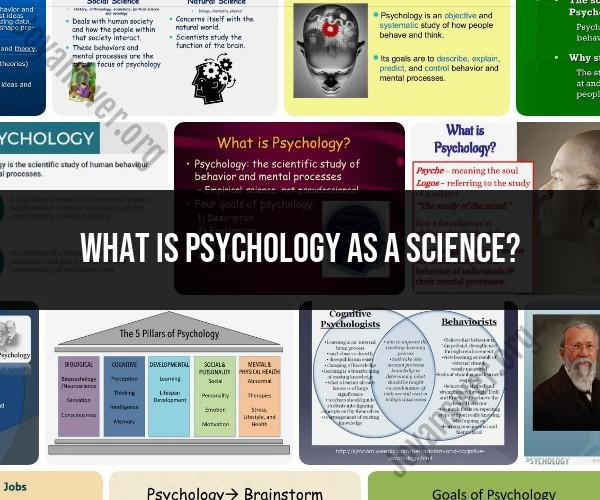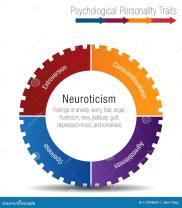What is psychology as a science?
Psychology is considered a science because it employs systematic and empirical methods to study and understand human behavior and mental processes. As a science, psychology follows the principles of the scientific method and adheres to rigorous research methodologies. Here is an overview of why psychology is classified as a science:
Empirical Observation: Psychology relies on empirical observation, which means that it seeks to acquire knowledge through direct observation and experimentation. Psychologists use controlled experiments, surveys, observations, and other research methods to gather data about human behavior and cognition.
Testable Hypotheses: Psychologists formulate testable hypotheses and research questions. These hypotheses are based on existing theories or observations and can be subjected to empirical testing. The scientific method is used to design experiments and gather data to evaluate these hypotheses.
Objective Measurement: In scientific psychology, efforts are made to ensure that measurements and data collection are as objective as possible. This involves using standardized instruments and methodologies to reduce bias and subjectivity.
Data Analysis: Psychologists use statistical techniques and data analysis methods to interpret research findings. Statistical analysis helps determine the significance of results and whether they support or refute hypotheses.
Replication: One of the hallmarks of science is the ability to replicate research findings. Psychologists aim to conduct studies in a manner that allows other researchers to replicate their work and verify the results independently.
Cumulative Knowledge: Like other scientific disciplines, psychology contributes to a cumulative body of knowledge. New research builds upon and extends previous research, leading to a deeper understanding of human behavior and mental processes.
Falsifiability: Scientific psychology embraces the concept of falsifiability, which means that hypotheses and theories are open to being disproven by empirical evidence. If research findings consistently contradict a theory, the theory may be revised or rejected in favor of a more accurate one.
Theory Development: Psychological research aims to develop and refine theories that explain human behavior. These theories are subject to ongoing testing and modification as new evidence emerges.
Applications: The findings of psychological research are applied in various fields, including clinical psychology, education, counseling, and organizational psychology. The practical application of psychological principles is evidence of its scientific relevance.
Ethical Guidelines: Ethical considerations play a significant role in scientific psychology. Researchers are guided by ethical principles to ensure the well-being and rights of research participants and the responsible conduct of research.
It's important to note that psychology is a diverse field with various subdisciplines, including cognitive psychology, clinical psychology, social psychology, and more. While all these subfields adhere to the scientific principles of psychology, they may employ different methodologies and focus on different aspects of human behavior and mental processes. Nonetheless, the overarching goal of psychology as a science is to systematically study, understand, and explain human psychology through empirical research.












